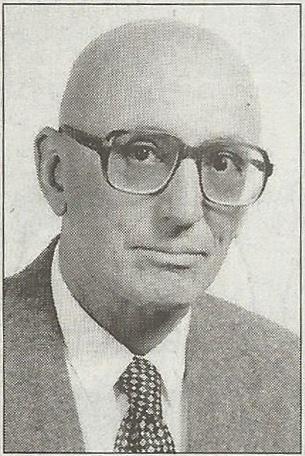
Today I went to the calling hours for a family friend, who was a physician to my family as well as to me when I was an adolescent, and who was also a fellow sailor with whom we all spent many happy days. Dr. Frederick Harrison Grabo was 87.
Being 30 years his junior, I never really worked with Fred. I was his patient - he removed a mole from my back when I was in college, and treated a plantar wart (which he sympathized about, because he was also a runner). So I can’t really say how I came to admire Fred’s bedside manner, but probably it was my own direct experience as a patient and then observing him as a family friend.
When I try humor to help a patient relax and lighten up, I always try to emulate Fred Grabo. Humor is truly therapeutic, but humor that is out of place in a clinic is awkward and risks seeming trite and non-caring, as if you're not taking the patient's situation seriously. Thus, clinical humor demands a special tone, and must be carefully delivered. For that purpose, I came to admire the dry wit of Fred Grabo, whose sense of humor was dry like the desert sand on a hot summer day. And delivered with only a look of the eyes to make sure you “got it”. Fred had a class of dry wit all his own.
I’ve found that when I have used dry humor with patients, they "get it" that I'm trying to help them lighten up, be more positive, while sensing I'm aware of their situation and not trivializing how terrified they are. Allowing yourself to be vulnerable to a doctor is a terrifying experience, and I find that often it’s more helpful to use humor than try to console someone.
At the same time, one must be careful to make fun with patients. This is why I have never found Steve Martin to be funny, because his humor makes fun of people, at their expense. It’s a style many comedians use today, and it may have a place…but not in the clinic. Humor is helpful in the clinic, but not if patients think you’re making fun of them. Using humor in the clinic is not easy to do, because one must make fun of situations but not individuals, the humor must be indirect. Dryness and irony work well, but it still must be carefully crafted.
Fred never tried to teach me how to use dry humor to help patients, or I don’t think he even was aware that I was studying his unique brand of wit. Other than my being his patient (which was well before I went to medical school), I don't think we had any clinical experiences together. But every time I prod a patient with jest, I give a silent nod to Fred Grabo and ask myself how my attempt at droll wit would stand up to his.
I will miss you, Fred, but will still compare myself to you every time I prod my patients, and am eternally grateful for showing me how to find my own voice as a healer. May the wind always be at your back.
- GE Moore MD's blog
- Log in to post comments
- Follow our Blog
